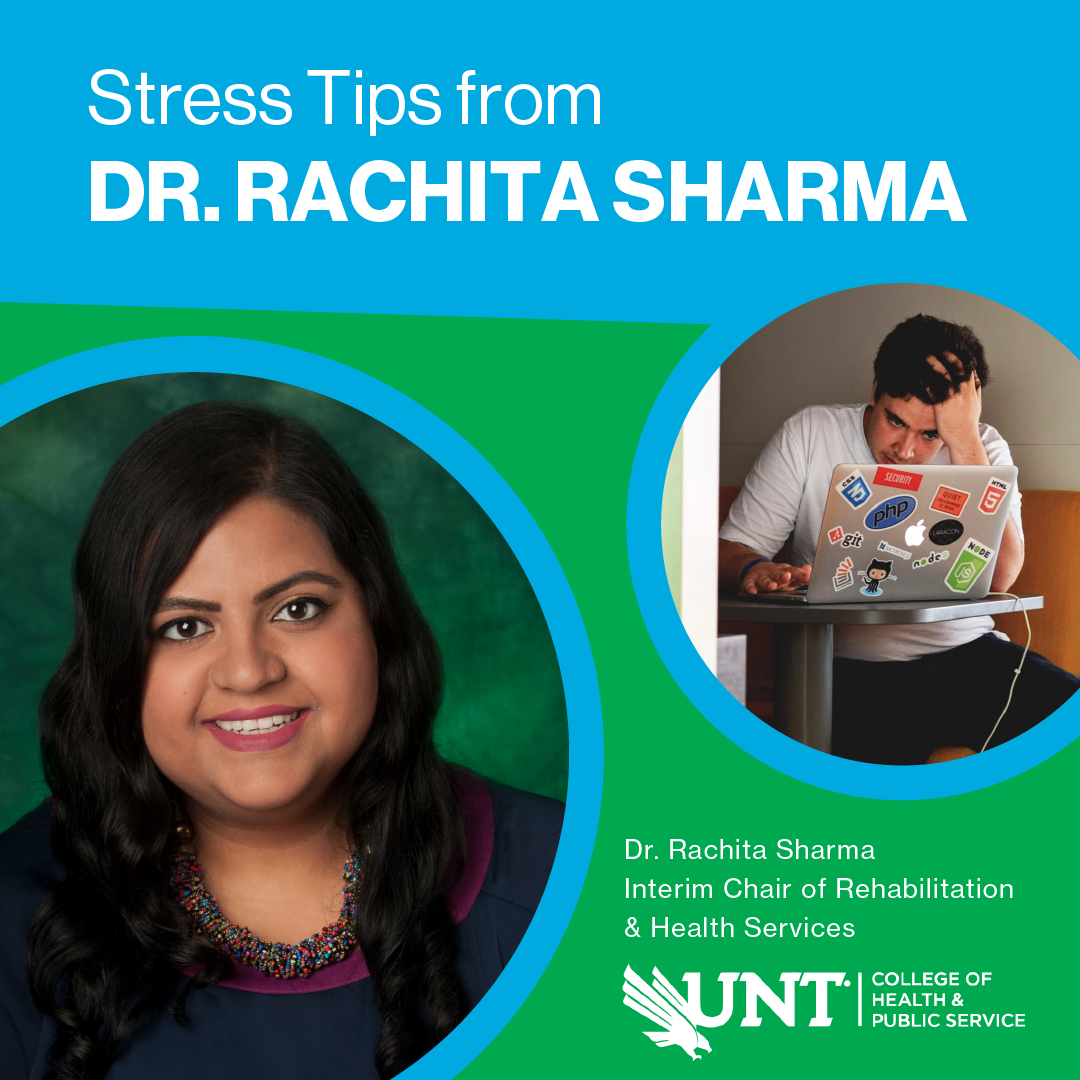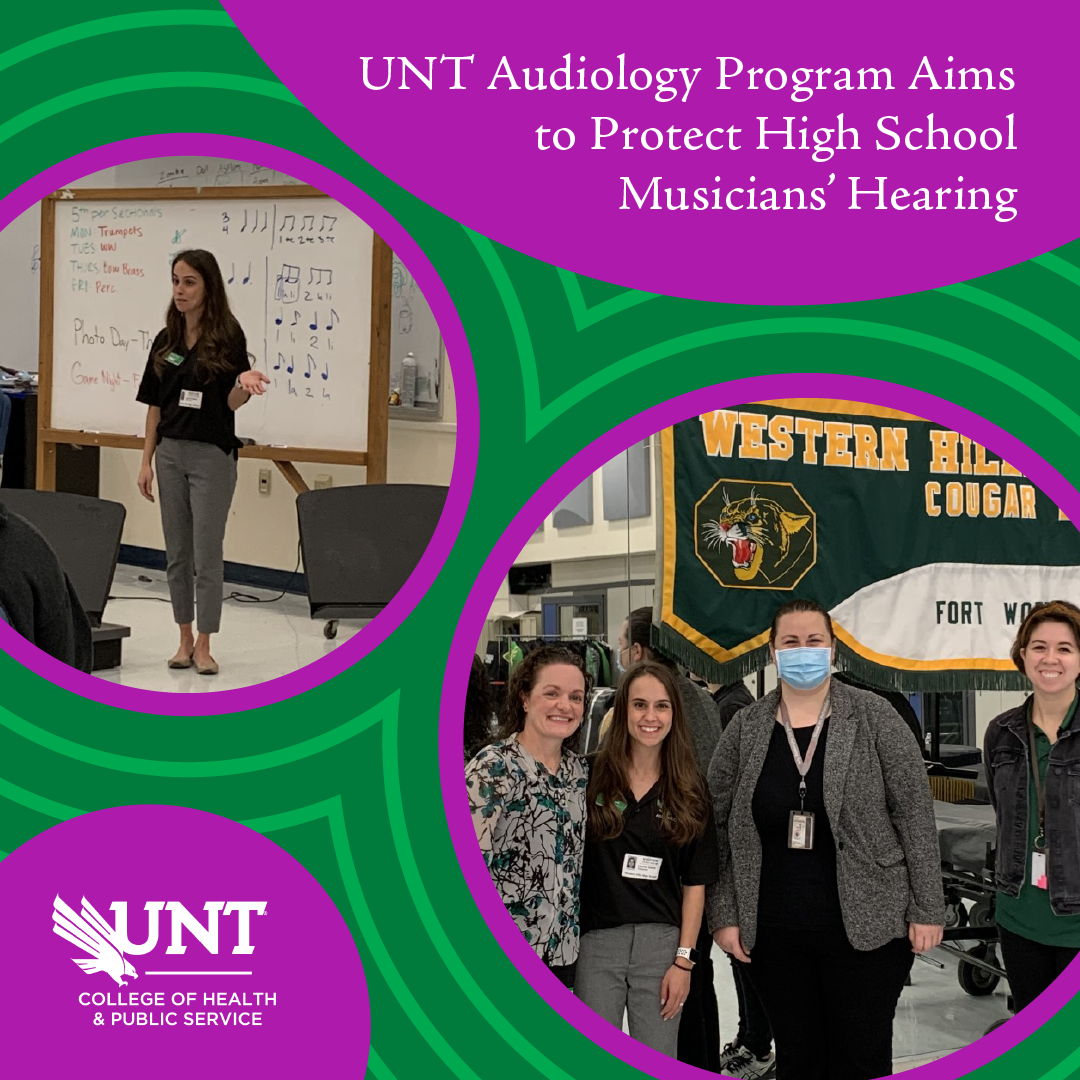UNT RHS interim chair offers student tips on stress management
 More than 50 percent of college students report feeling concerned about their mental health. Dr. Sharma says minimizing stress can help.
More than 50 percent of college students report feeling concerned about their mental health. Dr. Sharma says minimizing stress can help.
DENTON (UNT), Texas – According to Inside Higher Ed, 58 percent of college students say they were “moderately,” “very” or “extremely” concerned about their mental health. Dr. Rachita Sharma, interim chair of the Department of Rehabilitation and Health Services (RHS) in the University of North Texas College of Health and Public Service says managing stress can help improve mental health and well-being. Dr. Sharma offers the following tips for UNT students to help manage stress.
Tip 1: Learn to manage your time wisely.
“Feeling overwhelmed or imbalanced by all your responsibilities? Develop good time management habits to avoid procrastination and make the most of your minutes,” Dr. Sharma says. “Having a detailed schedule for each day that blocks out time for classes, homework, and studying as well as any personal tasks (and sticking to that schedule) can be very helpful!”
Tip 2: Nourish your body with adequate sleep and proper nutrition.
“Think of yourself as a houseplant,” says Dr. Sharma. “You need proper nutrition and rest to thrive. While sleep procrastination is a reality for many of us, chronic sleep deprivation causes anxiety and makes it harder for you to concentrate and be productive. Make sleep and good nutrition a priority. Your brain will feel clearer and your body will feel better overall.”
Tip 3: Break down big tasks into smaller steps.
“How do you eat an elephant? Piece by piece!” explains Dr. Sharma. “This tip goes hand-in-hand with managing your time. Huge projects or other to-dos can create stress, but dividing those projects into manageable chunks and assigning due dates to each of those milestones will make you feel in control and help you avoid unhelpful anxiety.”
Tip 4: Practice self-care, daily!
“Looming deadlines, difficult class material, or an overflowing plate can each cause panic to creep into the brain,” explains Dr. Sharma. “It’s important to recognize when you’re feeling overwhelmed or overly upset and have access to a few reliable methods to calm yourself down and feel better. Try yoga, meditation, and visualization techniques.” She also adds, “If you need help dealing with anxiety or stress, reach out to the Counseling and Testing Services center or the UNTWELL clinic on campus. That’s what they’re here for!”
Tip 5: Make time for fun.
Dr. Sharma says, “Get outside, join a club that sounds enjoyable, go to the gym or on a hike, practice a new hobby, or meet a friend for coffee. Smiles and laughter are valuable for the body–they help release endorphins in your brain and relax stressed muscles.”
Tip 6: Build your tribe (aka, support system).
“Chances are, you’re not the only one feeling nervous about that upcoming test or project,” Sharma explains. “Sometimes, bonding with your classmates is a good way to feel better about what’s in front of you. Knowing you are not alone can ease anxiety and actually help you perform better!”
Tip 7: Set boundaries when needed.
Finally, Dr. Sharma explains, “Take care of YOU. Prioritize yourself by learning how to say NO when tired. Don’t let #FOMO drive you when fatigued: Instead, embrace #JOMO (joy of missing out) when needed.”
For more information on UNT mental health resources, visit Speak Out UNT, a web resource with valuable information for students.
- Rehabilitation and Health Services


 DENTON (UNT), Texas – The new bachelor of science degree in Addiction Studies in the
DENTON (UNT), Texas – The new bachelor of science degree in Addiction Studies in the  The project, titled “Music and Hearing Conservation,” is geared toward area band and orchestra students.
The project, titled “Music and Hearing Conservation,” is geared toward area band and orchestra students.